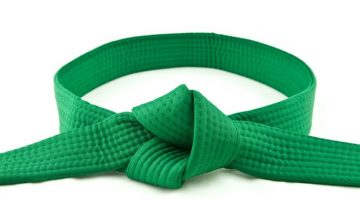The U.S. Armed Forces have offered many great examples of how putting Lean Six Sigma to use can improve military operations. One of the latest comes from the U.S. Navy in a project led by two transportation specialists that not only streamlined operations but improved workplace culture and gave the Naval operation more flexibility in dealing with the coronavirus.
The transportation specialists developed the project as part of their training for a Green Belt. That commitment to training has been a staple of continuous process improvement efforts by both the U.S. Army and U.S. Navy in recent years.
The Challenge That Needed Solving
The project took place at the Naval Supply Systems Command (NAVSUP) Fleet Logistics Center (FLC) Bahrain Personal Property Shipping Office (PPSO), which handles all shipment and delivery of household goods and vehicles to personnel associated with the military, Department of Defense civilians and contractors who work in Bahrain.
In two separate Lean Six Sigma projects, transportation specialists Dominic Near and Zahra Husain decided to address challenges involving data entry, reporting and the problem-solving process in the office.
The projects resulted in sustained time reduction and improved productivity, with timely processing for 97% to 100% of quality assurance inspections and 100% of weight certificate and file record review tracking, according to a news release about the projects.
Jacqueline Adams, the improvement champion who facilitates Lean Six Sigma workshops for personnel onboard Naval Support Activity Bahrain, said the projects increased employee morale by eliminating wasted time due to waiting and duplicate work or extra processing.
Both waiting and extra processing are among the eight wastes of Lean. Wastes also include defects, overproduction, unused talent, transportation, inventory and motion.
Adams added that the two transportation specialists “also sustained process effectiveness and customer satisfaction for the past two years in both internal and external processing” of shipments, problem solving and reporting.
Projects Helped Navy Office Handle COVID-19
The projects had led to improved processes and standardizations getting put into place – all of it before the coronavirus outbreak in 2020. Once the pandemic hit, the PPSO could more easily modify its operations because of the improved processes put into place.
This isn’t the only case of businesses reporting that Lean tools and strategies made them nimbler during the pandemic. For example, a French bakery turned to Lean to help them radically change their business as the pandemic closed restaurants and schools.
Other businesses that used Lean to help navigate the challenges the virus put on the economy included a Portland window company, an Indianapolis software company and a company that provided cloud-based systems for pharmaceutical companies working on treatment for the coronavirus.
In the case of NAVSUP Bahrain PPSO, the improvements in processes were maintained even as the pandemic continued. Adams said the projects are part of building a culture of continuous process improvement.
“It is very easy to complain about what is not working, or what can be better,” she said. “However, it takes true heart and determination to step up and take on the task of making the necessary changes to actually improve the way we operate and take care of customers.



